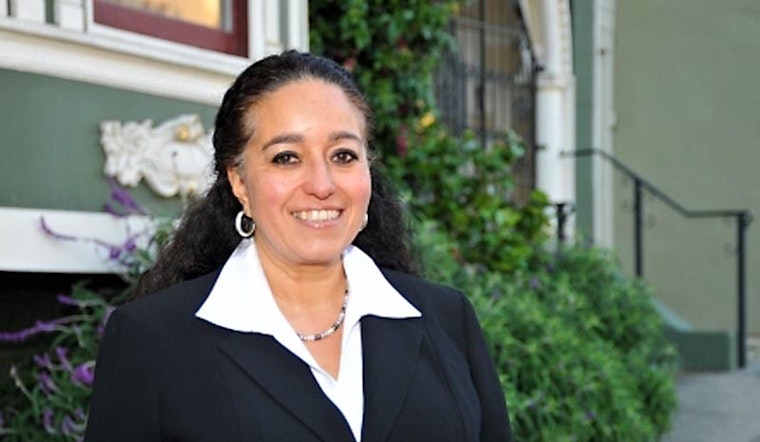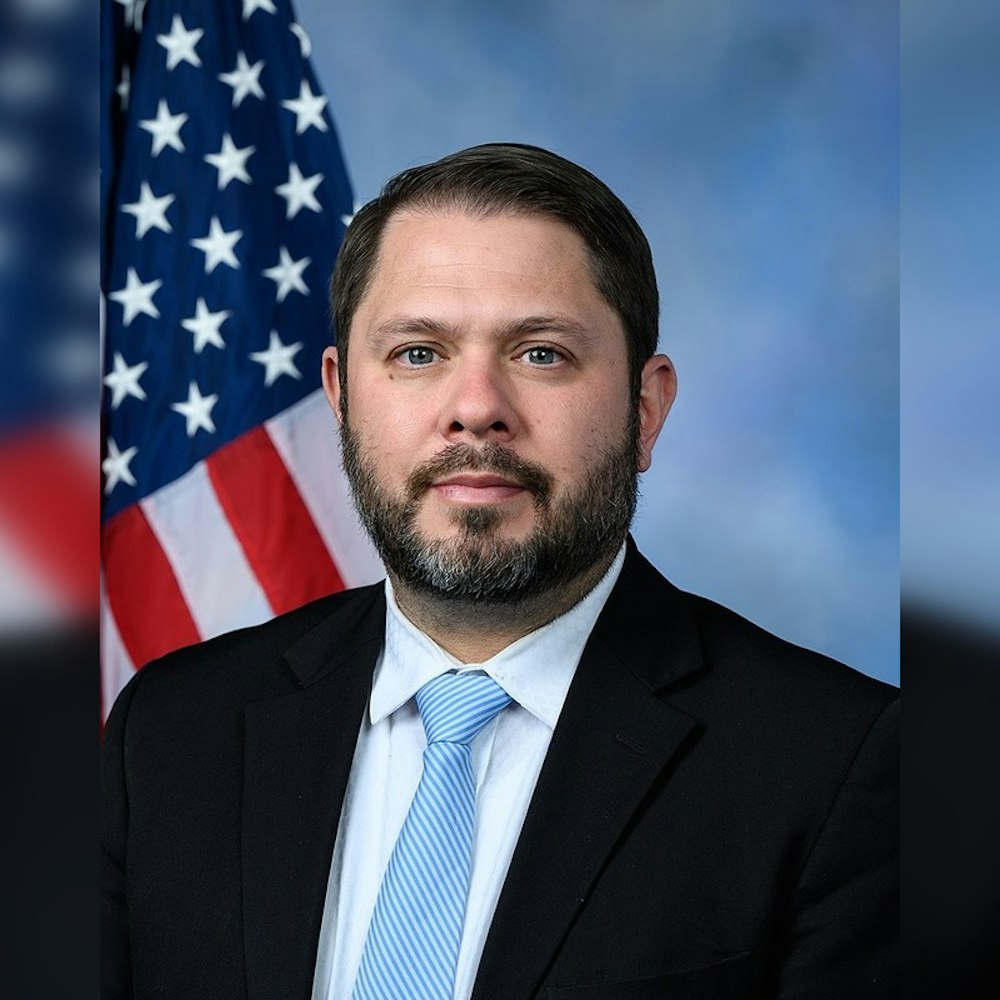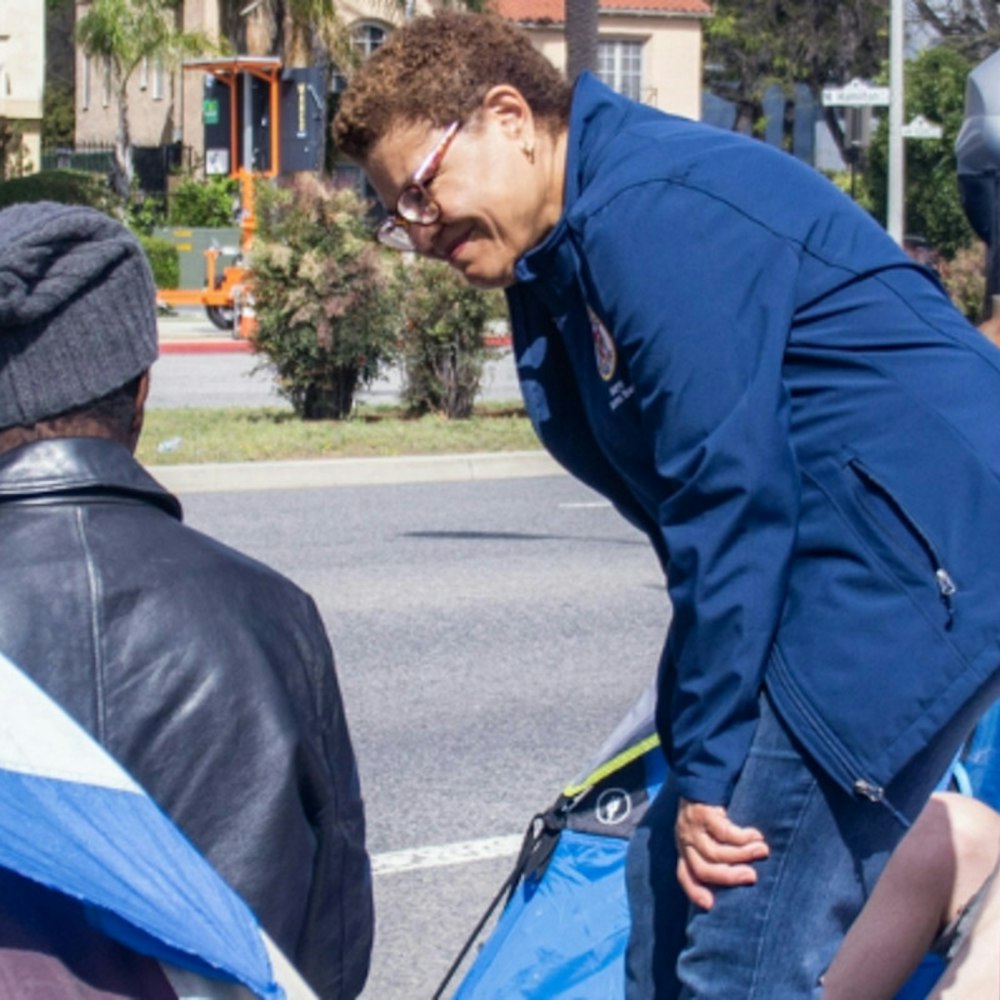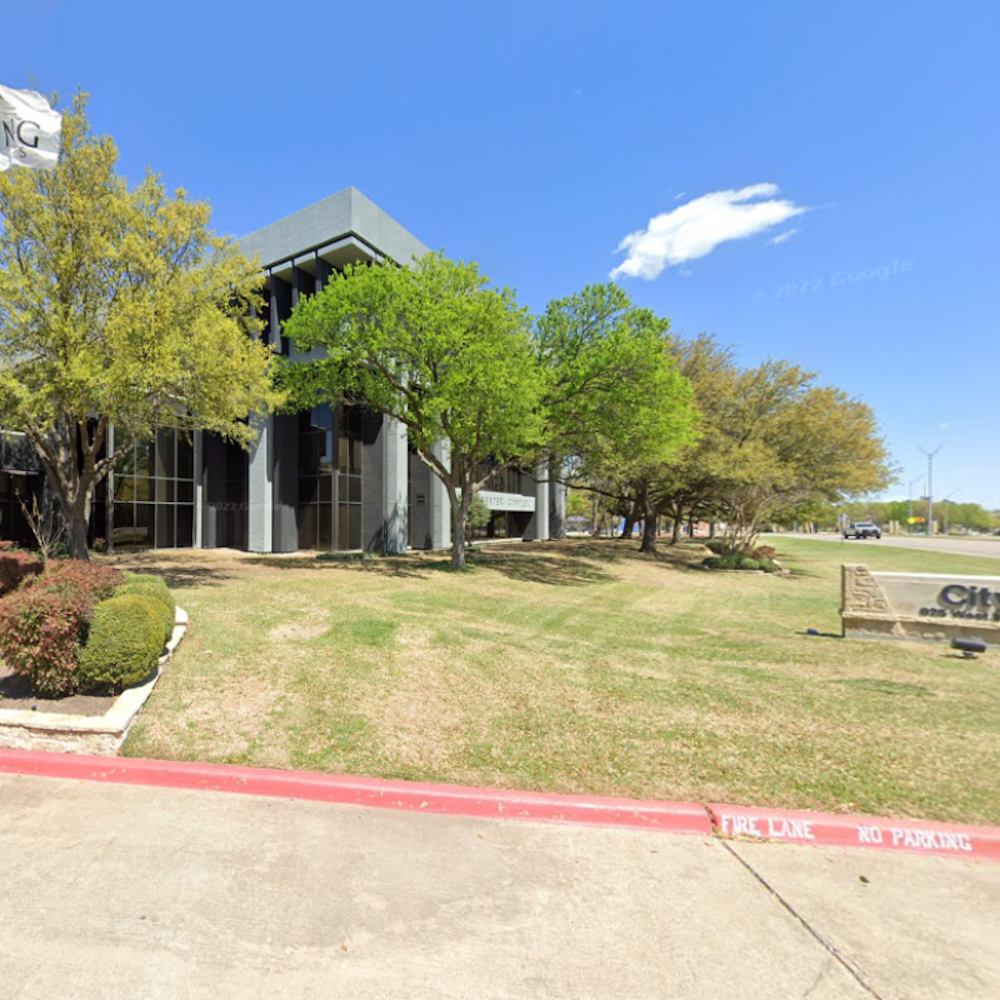
A couple of weeks ago, we asked Haighteration readers to submit questions for District 5 Supervisor Christina Olague, who represents the majority of the Lower Haight.
This past Thursday, April 12th, we sat down with Olague in her City Hall office for an interview. We were only given 15 minutes, so we couldn't get to everything -- but we did cover a good amount of ground.
Here's an almost-totally-unedited transcript of our conversation.
Haighteration: So, when we first scheduled this interview, I posted a story asking our readers about their concerns about the Lower Haight. But before we get to that, I was interested in hearing what you might think are the big issues facing Lower Haight residents right now. Olague: I think that what's important in the Lower Haight -- one of the issues that came to our attention recently, there's a small business that is on the verge of being displaced. I'm not going to mention the name or anything, you know, for privacy's sake of the owner and maybe the sensitivity of the relationship with the landlord. H: Sure. O: So I think that any time you have a neighborhood commercial corridor like the Lower Haight that still has a lot of small family-owned businesses, many who have been there for 20, 30 years, as you start to see an influx of maybe different types of -- you know, the potential for charging higher rents perhaps, you know, this kind of thing -- so, what's important is to try to retain the character of the Lower Haight as it is. So, I think that that's definitely a concern. H: What can a Supervisor do to maintain that character? I mean, if there's a free market, and a business doesn't have a long-term lease, what can you do, if anything-- O: I mean, it's hard to really -- sometimes you can engage with a community on a lot of different levels. You can try to mediate between the small business owner and the landlord. You can just try to call attention to that commercial corridor. We might want to look at re-evalutating some of the rules around zoning in that area, which may or may not need to be changed. I know in some neighborhood commercial districts, like Divisadero and other places, there's been some pushback about allowing certain types of businesses, like financial services and those types of things. H: Yes. O: So I'm working with [District 1 Supervisor] Eric Mar now to try to include financial services in the definition of formula retail, so that if a financial service wants to come into a neighborhood, then they would have to go through conditional use. Which isn't to say that it would be prohibited, but at least the public would have the opportunity to weigh in on it. And there's a lot of other policies that play into those issues. H: OK. One thing that many many people asked me to ask you about, which is not surprising, is your predecessor, Ross Mirkarimi. O: Yeah. H: Do you think that he has been treated fairly through the process-- O: We can't talk about it, because we've been prohibited, because we may need to weigh in on it at the Board level. So we're not allowed to comment on that at all. H: OK. In a broad sense, then, do you think that with public officials in this city, when situations arise, do you think the process for handling them works as it should? Do you think that needs any-- O: It's something that I don't want to comment on at this time. And it's also too broad a question so it's kind of hard to-- H: Well I could get more specific. O: [laughs] Well, it seems too leading, so I would rather just not comment on it. H: OK, let's move on. Redistricting. O: Yes. H: That as you know is something that's coming to a head this weekend, with the [Redistricting] Task Force. They've been working for months to figure out the borders of the different districts, and they have to submit their final plan by Sunday to the Board of Supervisors. O: Mmm hmm. H: A couple of readers asked what your involvement has been so far. They felt that you had gotten involved recently, but in the months leading up to the past couple of weeks, you perhaps weren't a strong voice advocating for the concerns of the neighborhood. O: I think that's kind of misinformed, actually. I got here in January, and we've been following it since I arrived. And part of what our role was was to get a sense of what the constituents were advocating for. So I think that's the role a Supervisor should play -- more of a facilitator role in this process. We heard a lot in the beginning from people in the Japantown area who were very concerned that they were going to be removed. H: Right. O: And then also there was also a concern that they create an area of interest between the Japantown area and the African American communities. So we wanted to make sure their voice was heard. So we were basically taking the lead from the constituents who reached out to us. We certainly have been communicating those concerns to the obvious people. And then we hosted a meeting in the Western Addition, at the [West Bay Conference Center], we hosted a meeting there. We invited members of the Task Force to attend, Eric McDonnell and Jenny Lam, to come educate the public as to what was going on at the state redistricting level. That was something that we hosted in the community because we heard from community members that the times and places of some of the meetings weren't convenient for them. So we thought we would bring at least one meeting to the community. H: Right. O: And since that time, you know, we certainly have been communicating the concerns. We facilitated a meeting. We attended meetings -- if I haven't attended, certainly our aides have. And we've been keeping track of the emails we've been receiving. So since we got here, we've been engaged. H: Have you had much outreach from Lower Haight residents? Have you gotten any emails-- O: Not until recently. We've received maybe one email, from one person from the Lower Haight. H: Really? O: We have not been receiving a lot of-- you know, occasionally here and there. But, the people definitely from Japantown, the people from Western Addition, the people from the [Upper] Haight, have been very engaged. There's a group that, I think, was it Justin Morgan, involved in some mapping -- I forget the name of that group -- and then there was a group composed of more progressive types, that was Fernando Marti and some of the members of Council of Community Housing Organizations, and then we got some -- Vallie Brown talked to me on a couple of occasions, but she's I think the main person from the Lower Haight that actually reached out to me. Other people have actually reached out to me, come up to me, set appointments, seen me at public meetings and have approached me. But people from the Lower Haight, with the exception of Vallie Brown, have not. And we have been hearing some back and forth around the 55 Laguna site. There's some controversy around it, because there are some people in the LGBTQ community who are very invested in seeing the Open House site go to District 8, because they felt that it was a community of interest. So one of the solutions initially was to split it. H: Right. O: But I was informed by a member of the Redistricting Task Force that that was impossible, because it was a census block. So based on that information, I thought that it would be respectful to have a conversation first with [District 8] Supervisor Wiener, who had expressed an interest in seeing that remain in D8. But my experience with that project was pretty extensive because when I was on the Planning Commission, we heard 55 Laguna. It was a project that we voted on. I'm very familiar with it. Also at the time that project was passed through, the D8 Supervisor [Bevan Dufty] was conflicted out due to his proximity to the address. And then advocates and the D5 Supervisor and I were engaged in ensuring that the Open House site was low-income. So a lot of the advocacy and a lot of the work on that project was really driven by D5. It doesn't matter, but certainly there are some commonalities. There's a large LGBTQ population in D5, and also there's a large renter population in D5. So it could have gone either way, but I felt like I needed to be respectful of the Supervisor and have the conversation with him before advocating for or going public and saying we would be happy to have 55 Laguna and say that it makes perfect sense to include it in our district. H: My understanding is that one concern for the Lower Haight is that the other half of the project could become sort of just a bedroom community for people commuting down to the Peninsula. And-- O: There's probably some of that. But-- we could continue to weigh in on that project clearly. So I think some people were concerned about that. But it does have a higher level of affordability, that we recently have been engaged with the developers to make sure that stays in place. So we'll always be advocating for that. And I think that's the fear of a lot of projects in the city. And that's just the fear of housing in the city. I mean that's a fear that a lot of people in the city have of the whole city -- that it's becoming a bedroom community. H: The other aspect of redistricting that I wanted to ask you about was that I know the Lower Haight Merchants and Neighbors Association -- which, full disclosure, I'm a member of -- was advocating for extending the southern boundary of District 5 a block from Waller to Hermann. And they were pushing for that for several months, and just in the past week or so, that's become part of the Task Force's working map. So they were very happy about that-- O: I mean, not that it matters, but just so you know, I might have seen a letter, but I never actually-- no one from that organization ever called our office. H: OK. And I don't know that they did. I know that that's important though, because Fillmore, that commercial corridor, extends down all the way to Hermann. There are several businesses on that one block, that up until now have not been part of our District. So getting that was very important. And then I was watching the Task Force meeting last night. I was watching online, because I do things like that, and it seems that there's been an issue in the Panhandle, where some blocks have been lost in the most recent map. O: Right. Right. H: You made a comment at the microphone last night that maybe that could be sort of a swap. O: Mmm hmm. H: I'm paraphrasing, but I think that's what you were trying to say. Do you think that would be a good solution, and if you do, what would you say to the people in the Lower Haight who have been advocating for that and are concerned that ten more years are going to go by without these businesses in our District? O: Well I think that the businesses are ones that are certainly -- we're concerned about the commercial corridors. We've already been engaging in work on Divisadero, and the Fillmore, we've been working with Upper Haight, we've been working with all these areas. Certainly we want to do more work with the Lower Haight. And I'm happy to meet with people to engage to hear what those priorities are. And we'll gladly set up a meeting and hear all of those priorities of all those businesses, and see if there's things that we can do to support that more. I think a lot of the people in the Panhandle were concerned because they'd been part of District 5 for 20, 30, 40 years. And they have strong neighborhood associations, and a strong history, and a strong community of interest on so many levels. And suddenly they were being compromised, and we weren't sure why. So we were hearing from a lot of groups who were clamoring to get in, basically at the expense of a community of interest that had been part of D5 for 40 or 50 years. And the same was occurring in NOPA areas. I was talking to African American residents who had been part of the Haight for 40 years, and suddenly they were being districted out. Part of that is because D1 has to grow. And how D1 grows is really the controversy. Because Anza Vista was I think what was in question yesterday. And so basically, will D1 take from D5, or will D1 take from D2? Yesterday, how we left it I think was Lake Street would be the border. And so D2 ended up taking the hit, so to speak. But I just want people, when they're advocating, to make sure it's a holistic thing, where we're thinking about D5 as a holistic thing. Because I certainly wasn't thinking about self-interest when advocating for those neighborhoods. It's because those people were coming to us with hundreds of signatures, hundreds of letters, and saying, "We want to stay in 5, and this is why." It should never be about self-interest, it should be about communities of interest. That's kind of where I'm coming from on that. H: OK. I want to move on, because I know you're short on time. The proposed bikeways. O: Mmm hmm. H: Bicycling is an important issue in our neighborhood. The Wiggle goes through it, so, this is something that people are very passionate about. There's a proposal now to have dedicated bikeways on Fell and Oak Streets. And there are two very strong sides. The supporters are saying obviously that the bikeways will make the area safer for bicyclists, and the detractors say that we're going to lose a lot of parking spaces, and parking is very scarce in the neighborhood already. I was wondering where you come down on this, if you have an opinion one way or the other. O: San Francisco has a transit-first policy. We have policy goals that include seeing an increase to 20% bicycling by 2020 or something. So we have policies, we have goals, we have community plans. We have a lot of things that led to this whole vision of the city being a transit-first city. So I think that, to that end, that's how we should be thinking in terms of how our behavior and how our decisions help us reach those goals and also be true to the policies that we already have in place. The Bike Oak thing is like a 2-block stretch. It's like 70 to 80 parking spaces that might be removed. So, the issue there of course is around the parking. We looked at all the different scenarios too. Some people were saying, "Well, they should go up Page." Well, the topography is not conducive to going that route. Other people were saying, "Well, you could go down Hayes." Well, a lot of people aren't going to go down Hayes. It's kind of a little bit illogical, it doesn't follow the course of cycling. It seems when you even look at the other alternatives, I've been told by the MTA that they would result in an even greater loss of parking. People have talked about removing a lane of traffic. That's not a bad idea -- I think that would be something that would be nice to look at -- but apparently people who live on the west side who use that route to commute from that side of town to downtown or wherever aren't really supportive of removing a lane of traffic. So, it seems to me that we're kind of stuck with this, "Well, should we create this vision for this greenway that would be conducive to families riding bikes?" I think it's a logical sort of progression along the Wiggle, and would create a beautiful greenway, that even pedestrians and others would learn to appreciate. So the question of the parking is one that we'll continue to work with. Residential parking in that area is kind of spotty. What we're hoping to do -- and we'll get it out in the newsletter and other ways -- they've designed a zone for residential parking. I think the goal is to create more residential parking areas. Because a lot of people, knowing that there are so many blocks that aren't designated for it, will come from other parts of the city, park their cars, and take the bus somewhere. We want to make sure, as a starting point, that residential parking is more available to residents of the area, and discourage other people from driving in and taking up those spaces. So I think parking is an issue that we're going to continue to engage in with the small businesses and others that have all these concerns. It's something we're actively working on. There's the DMV parking lot, should we take a look at that? There are some spaces on Divis that we want to take a look at. So we're kind of engaged actively in finding some ways of mitigating the parking loss. But at the end of the day, we're supportive of that project. And actively, not even passively. We believe in a transit-first policy. And to that end, we believe that's how the city should be responding to things. H: OK. There's one big topic that I want to make sure we get to before I go, and that's the fire at Haight and Fillmore. O: Yeah. H: It's been six months. I've been in touch with some of the residents and merchants that were affected. Everyone, pretty much, has expressed displeasure to me about how things have gone since the fire. I've heard from some residents that just don't really know what their rights are. They're wondering, will they be allowed to move back in? Are they entitled to the same rents-- O: We should have a meeting with them. And we'll arrange that. We've been working behind the scenes on some stuff, but I think we should meet with the tenants and just -- what we're finding is that we may need to look at creating more legislation that would protect the rights of fire victims. Because there's a lot of stuff that we assumed would be on the books that isn't. H: I think even if things are on the books, people just don't know. And it doesn't seem that there's a process by which-- O: I think it's both. We're finding that it's both. We've had one meeting here with two tenants and someone from the Housing Rights Committee. But we'd like to set up another meeting with tenants. H: I think that's a good idea. I think they would appreciate that. O: I worked as a tenant advocate before, so we're very connected with that. H: Another issue that one or two of them have brought up to me recently is that they've seen some plans, and it seems like their units might be reconfigured in these new designs, and they're wondering is that even legal? Is that-- O: I don't think that's illegal. But have them contact us, and we'll work with them. H: I also talked to the architect who's working on it. And he says it's just been really hard -- just in general, projects of this size in this city are very slow, and it's sort of by design, where there's this deliberative process with hearings and community meetings where people can give input, and it's meant so that all sides that are affected by a project can voice their concerns. But the effect of that is that, he says, he submits his plans to the Planning Department, and they sort of sit there. He said, "It takes about nine weeks from something being submitted to the Planning Department to someone just taking a look at it." And after that, it gets reviewed. So that's just to get his foot in the door. I'm wondering, based on your experience [as Planning Commission president], and now as Supervisor, if you think that the city could run more smoothly, and if those processes are inefficient, or if that's just how things have to go. O: It's kind of a complicated issue. That's why in part we were working for that restaurant legislation, to streamline the process behind that. That was something I started working on with staff about a year ago. Because the code is so convoluted. Those little videos that you might have seen on TV? It's the truth. It really was that way -- it wasn't exaggerated or make-believe, it was reality. So I think there are some ways that it is the code, and then I think there are other things at play that we may need to look at further, which have to do with the process itself. But you submit the plans, and it definitely has to go through Planning, and that's not going to happen overnight. Then once you go through the Planning Commission -- that's not even who you give it to. You give it to the Planning Department. Then the Planning Commission hears it, and the public can weigh in. Then after it's approved at the Planning Commission, there's this whole other thing with the Department of Building Inspection, that needs to review the project. I think there might need to be some review of the workflow. It might be a workflow issue, it might be a capacity issue. And this gets into stuff where it might have more departmental implications. But I'm not convinced that it's all around -- it's not so black and white. Olague's aide indicates that she needs to move on to another meeting. H: OK, wrapping up. You've been doing this for three months or so now. I'm curious as to how it's been going. Any surprises? O: No, basically we do lots of nuts and bolts things. A lot of it is neighborhood concerns, and so we spend a lot of time in the neighborhoods listening to people's concerns. H: You're enjoying it? O: I'm enjoying it, yeah. We're having a good time with things. H: Is it how you expected it would be? O: I think so, yeah. H: And you're excited for the election? O: [laughs] We can't really talk about that in this building. H: Adeptly handled. Well, I appreciate your taking the time to chat today. O: Sure.
As we said, thanks to Supervisor Olague for chatting with us. If you'd like to pose her a question of your own, you can find her contact information on the Board of Supervisors website.
Haighteration: So, when we first scheduled this interview, I posted a story asking our readers about their concerns about the Lower Haight. But before we get to that, I was interested in hearing what you might think are the big issues facing Lower Haight residents right now. Olague: I think that what's important in the Lower Haight -- one of the issues that came to our attention recently, there's a small business that is on the verge of being displaced. I'm not going to mention the name or anything, you know, for privacy's sake of the owner and maybe the sensitivity of the relationship with the landlord. H: Sure. O: So I think that any time you have a neighborhood commercial corridor like the Lower Haight that still has a lot of small family-owned businesses, many who have been there for 20, 30 years, as you start to see an influx of maybe different types of -- you know, the potential for charging higher rents perhaps, you know, this kind of thing -- so, what's important is to try to retain the character of the Lower Haight as it is. So, I think that that's definitely a concern. H: What can a Supervisor do to maintain that character? I mean, if there's a free market, and a business doesn't have a long-term lease, what can you do, if anything-- O: I mean, it's hard to really -- sometimes you can engage with a community on a lot of different levels. You can try to mediate between the small business owner and the landlord. You can just try to call attention to that commercial corridor. We might want to look at re-evalutating some of the rules around zoning in that area, which may or may not need to be changed. I know in some neighborhood commercial districts, like Divisadero and other places, there's been some pushback about allowing certain types of businesses, like financial services and those types of things. H: Yes. O: So I'm working with [District 1 Supervisor] Eric Mar now to try to include financial services in the definition of formula retail, so that if a financial service wants to come into a neighborhood, then they would have to go through conditional use. Which isn't to say that it would be prohibited, but at least the public would have the opportunity to weigh in on it. And there's a lot of other policies that play into those issues. H: OK. One thing that many many people asked me to ask you about, which is not surprising, is your predecessor, Ross Mirkarimi. O: Yeah. H: Do you think that he has been treated fairly through the process-- O: We can't talk about it, because we've been prohibited, because we may need to weigh in on it at the Board level. So we're not allowed to comment on that at all. H: OK. In a broad sense, then, do you think that with public officials in this city, when situations arise, do you think the process for handling them works as it should? Do you think that needs any-- O: It's something that I don't want to comment on at this time. And it's also too broad a question so it's kind of hard to-- H: Well I could get more specific. O: [laughs] Well, it seems too leading, so I would rather just not comment on it. H: OK, let's move on. Redistricting. O: Yes. H: That as you know is something that's coming to a head this weekend, with the [Redistricting] Task Force. They've been working for months to figure out the borders of the different districts, and they have to submit their final plan by Sunday to the Board of Supervisors. O: Mmm hmm. H: A couple of readers asked what your involvement has been so far. They felt that you had gotten involved recently, but in the months leading up to the past couple of weeks, you perhaps weren't a strong voice advocating for the concerns of the neighborhood. O: I think that's kind of misinformed, actually. I got here in January, and we've been following it since I arrived. And part of what our role was was to get a sense of what the constituents were advocating for. So I think that's the role a Supervisor should play -- more of a facilitator role in this process. We heard a lot in the beginning from people in the Japantown area who were very concerned that they were going to be removed. H: Right. O: And then also there was also a concern that they create an area of interest between the Japantown area and the African American communities. So we wanted to make sure their voice was heard. So we were basically taking the lead from the constituents who reached out to us. We certainly have been communicating those concerns to the obvious people. And then we hosted a meeting in the Western Addition, at the [West Bay Conference Center], we hosted a meeting there. We invited members of the Task Force to attend, Eric McDonnell and Jenny Lam, to come educate the public as to what was going on at the state redistricting level. That was something that we hosted in the community because we heard from community members that the times and places of some of the meetings weren't convenient for them. So we thought we would bring at least one meeting to the community. H: Right. O: And since that time, you know, we certainly have been communicating the concerns. We facilitated a meeting. We attended meetings -- if I haven't attended, certainly our aides have. And we've been keeping track of the emails we've been receiving. So since we got here, we've been engaged. H: Have you had much outreach from Lower Haight residents? Have you gotten any emails-- O: Not until recently. We've received maybe one email, from one person from the Lower Haight. H: Really? O: We have not been receiving a lot of-- you know, occasionally here and there. But, the people definitely from Japantown, the people from Western Addition, the people from the [Upper] Haight, have been very engaged. There's a group that, I think, was it Justin Morgan, involved in some mapping -- I forget the name of that group -- and then there was a group composed of more progressive types, that was Fernando Marti and some of the members of Council of Community Housing Organizations, and then we got some -- Vallie Brown talked to me on a couple of occasions, but she's I think the main person from the Lower Haight that actually reached out to me. Other people have actually reached out to me, come up to me, set appointments, seen me at public meetings and have approached me. But people from the Lower Haight, with the exception of Vallie Brown, have not. And we have been hearing some back and forth around the 55 Laguna site. There's some controversy around it, because there are some people in the LGBTQ community who are very invested in seeing the Open House site go to District 8, because they felt that it was a community of interest. So one of the solutions initially was to split it. H: Right. O: But I was informed by a member of the Redistricting Task Force that that was impossible, because it was a census block. So based on that information, I thought that it would be respectful to have a conversation first with [District 8] Supervisor Wiener, who had expressed an interest in seeing that remain in D8. But my experience with that project was pretty extensive because when I was on the Planning Commission, we heard 55 Laguna. It was a project that we voted on. I'm very familiar with it. Also at the time that project was passed through, the D8 Supervisor [Bevan Dufty] was conflicted out due to his proximity to the address. And then advocates and the D5 Supervisor and I were engaged in ensuring that the Open House site was low-income. So a lot of the advocacy and a lot of the work on that project was really driven by D5. It doesn't matter, but certainly there are some commonalities. There's a large LGBTQ population in D5, and also there's a large renter population in D5. So it could have gone either way, but I felt like I needed to be respectful of the Supervisor and have the conversation with him before advocating for or going public and saying we would be happy to have 55 Laguna and say that it makes perfect sense to include it in our district. H: My understanding is that one concern for the Lower Haight is that the other half of the project could become sort of just a bedroom community for people commuting down to the Peninsula. And-- O: There's probably some of that. But-- we could continue to weigh in on that project clearly. So I think some people were concerned about that. But it does have a higher level of affordability, that we recently have been engaged with the developers to make sure that stays in place. So we'll always be advocating for that. And I think that's the fear of a lot of projects in the city. And that's just the fear of housing in the city. I mean that's a fear that a lot of people in the city have of the whole city -- that it's becoming a bedroom community. H: The other aspect of redistricting that I wanted to ask you about was that I know the Lower Haight Merchants and Neighbors Association -- which, full disclosure, I'm a member of -- was advocating for extending the southern boundary of District 5 a block from Waller to Hermann. And they were pushing for that for several months, and just in the past week or so, that's become part of the Task Force's working map. So they were very happy about that-- O: I mean, not that it matters, but just so you know, I might have seen a letter, but I never actually-- no one from that organization ever called our office. H: OK. And I don't know that they did. I know that that's important though, because Fillmore, that commercial corridor, extends down all the way to Hermann. There are several businesses on that one block, that up until now have not been part of our District. So getting that was very important. And then I was watching the Task Force meeting last night. I was watching online, because I do things like that, and it seems that there's been an issue in the Panhandle, where some blocks have been lost in the most recent map. O: Right. Right. H: You made a comment at the microphone last night that maybe that could be sort of a swap. O: Mmm hmm. H: I'm paraphrasing, but I think that's what you were trying to say. Do you think that would be a good solution, and if you do, what would you say to the people in the Lower Haight who have been advocating for that and are concerned that ten more years are going to go by without these businesses in our District? O: Well I think that the businesses are ones that are certainly -- we're concerned about the commercial corridors. We've already been engaging in work on Divisadero, and the Fillmore, we've been working with Upper Haight, we've been working with all these areas. Certainly we want to do more work with the Lower Haight. And I'm happy to meet with people to engage to hear what those priorities are. And we'll gladly set up a meeting and hear all of those priorities of all those businesses, and see if there's things that we can do to support that more. I think a lot of the people in the Panhandle were concerned because they'd been part of District 5 for 20, 30, 40 years. And they have strong neighborhood associations, and a strong history, and a strong community of interest on so many levels. And suddenly they were being compromised, and we weren't sure why. So we were hearing from a lot of groups who were clamoring to get in, basically at the expense of a community of interest that had been part of D5 for 40 or 50 years. And the same was occurring in NOPA areas. I was talking to African American residents who had been part of the Haight for 40 years, and suddenly they were being districted out. Part of that is because D1 has to grow. And how D1 grows is really the controversy. Because Anza Vista was I think what was in question yesterday. And so basically, will D1 take from D5, or will D1 take from D2? Yesterday, how we left it I think was Lake Street would be the border. And so D2 ended up taking the hit, so to speak. But I just want people, when they're advocating, to make sure it's a holistic thing, where we're thinking about D5 as a holistic thing. Because I certainly wasn't thinking about self-interest when advocating for those neighborhoods. It's because those people were coming to us with hundreds of signatures, hundreds of letters, and saying, "We want to stay in 5, and this is why." It should never be about self-interest, it should be about communities of interest. That's kind of where I'm coming from on that. H: OK. I want to move on, because I know you're short on time. The proposed bikeways. O: Mmm hmm. H: Bicycling is an important issue in our neighborhood. The Wiggle goes through it, so, this is something that people are very passionate about. There's a proposal now to have dedicated bikeways on Fell and Oak Streets. And there are two very strong sides. The supporters are saying obviously that the bikeways will make the area safer for bicyclists, and the detractors say that we're going to lose a lot of parking spaces, and parking is very scarce in the neighborhood already. I was wondering where you come down on this, if you have an opinion one way or the other. O: San Francisco has a transit-first policy. We have policy goals that include seeing an increase to 20% bicycling by 2020 or something. So we have policies, we have goals, we have community plans. We have a lot of things that led to this whole vision of the city being a transit-first city. So I think that, to that end, that's how we should be thinking in terms of how our behavior and how our decisions help us reach those goals and also be true to the policies that we already have in place. The Bike Oak thing is like a 2-block stretch. It's like 70 to 80 parking spaces that might be removed. So, the issue there of course is around the parking. We looked at all the different scenarios too. Some people were saying, "Well, they should go up Page." Well, the topography is not conducive to going that route. Other people were saying, "Well, you could go down Hayes." Well, a lot of people aren't going to go down Hayes. It's kind of a little bit illogical, it doesn't follow the course of cycling. It seems when you even look at the other alternatives, I've been told by the MTA that they would result in an even greater loss of parking. People have talked about removing a lane of traffic. That's not a bad idea -- I think that would be something that would be nice to look at -- but apparently people who live on the west side who use that route to commute from that side of town to downtown or wherever aren't really supportive of removing a lane of traffic. So, it seems to me that we're kind of stuck with this, "Well, should we create this vision for this greenway that would be conducive to families riding bikes?" I think it's a logical sort of progression along the Wiggle, and would create a beautiful greenway, that even pedestrians and others would learn to appreciate. So the question of the parking is one that we'll continue to work with. Residential parking in that area is kind of spotty. What we're hoping to do -- and we'll get it out in the newsletter and other ways -- they've designed a zone for residential parking. I think the goal is to create more residential parking areas. Because a lot of people, knowing that there are so many blocks that aren't designated for it, will come from other parts of the city, park their cars, and take the bus somewhere. We want to make sure, as a starting point, that residential parking is more available to residents of the area, and discourage other people from driving in and taking up those spaces. So I think parking is an issue that we're going to continue to engage in with the small businesses and others that have all these concerns. It's something we're actively working on. There's the DMV parking lot, should we take a look at that? There are some spaces on Divis that we want to take a look at. So we're kind of engaged actively in finding some ways of mitigating the parking loss. But at the end of the day, we're supportive of that project. And actively, not even passively. We believe in a transit-first policy. And to that end, we believe that's how the city should be responding to things. H: OK. There's one big topic that I want to make sure we get to before I go, and that's the fire at Haight and Fillmore. O: Yeah. H: It's been six months. I've been in touch with some of the residents and merchants that were affected. Everyone, pretty much, has expressed displeasure to me about how things have gone since the fire. I've heard from some residents that just don't really know what their rights are. They're wondering, will they be allowed to move back in? Are they entitled to the same rents-- O: We should have a meeting with them. And we'll arrange that. We've been working behind the scenes on some stuff, but I think we should meet with the tenants and just -- what we're finding is that we may need to look at creating more legislation that would protect the rights of fire victims. Because there's a lot of stuff that we assumed would be on the books that isn't. H: I think even if things are on the books, people just don't know. And it doesn't seem that there's a process by which-- O: I think it's both. We're finding that it's both. We've had one meeting here with two tenants and someone from the Housing Rights Committee. But we'd like to set up another meeting with tenants. H: I think that's a good idea. I think they would appreciate that. O: I worked as a tenant advocate before, so we're very connected with that. H: Another issue that one or two of them have brought up to me recently is that they've seen some plans, and it seems like their units might be reconfigured in these new designs, and they're wondering is that even legal? Is that-- O: I don't think that's illegal. But have them contact us, and we'll work with them. H: I also talked to the architect who's working on it. And he says it's just been really hard -- just in general, projects of this size in this city are very slow, and it's sort of by design, where there's this deliberative process with hearings and community meetings where people can give input, and it's meant so that all sides that are affected by a project can voice their concerns. But the effect of that is that, he says, he submits his plans to the Planning Department, and they sort of sit there. He said, "It takes about nine weeks from something being submitted to the Planning Department to someone just taking a look at it." And after that, it gets reviewed. So that's just to get his foot in the door. I'm wondering, based on your experience [as Planning Commission president], and now as Supervisor, if you think that the city could run more smoothly, and if those processes are inefficient, or if that's just how things have to go. O: It's kind of a complicated issue. That's why in part we were working for that restaurant legislation, to streamline the process behind that. That was something I started working on with staff about a year ago. Because the code is so convoluted. Those little videos that you might have seen on TV? It's the truth. It really was that way -- it wasn't exaggerated or make-believe, it was reality. So I think there are some ways that it is the code, and then I think there are other things at play that we may need to look at further, which have to do with the process itself. But you submit the plans, and it definitely has to go through Planning, and that's not going to happen overnight. Then once you go through the Planning Commission -- that's not even who you give it to. You give it to the Planning Department. Then the Planning Commission hears it, and the public can weigh in. Then after it's approved at the Planning Commission, there's this whole other thing with the Department of Building Inspection, that needs to review the project. I think there might need to be some review of the workflow. It might be a workflow issue, it might be a capacity issue. And this gets into stuff where it might have more departmental implications. But I'm not convinced that it's all around -- it's not so black and white. Olague's aide indicates that she needs to move on to another meeting. H: OK, wrapping up. You've been doing this for three months or so now. I'm curious as to how it's been going. Any surprises? O: No, basically we do lots of nuts and bolts things. A lot of it is neighborhood concerns, and so we spend a lot of time in the neighborhoods listening to people's concerns. H: You're enjoying it? O: I'm enjoying it, yeah. We're having a good time with things. H: Is it how you expected it would be? O: I think so, yeah. H: And you're excited for the election? O: [laughs] We can't really talk about that in this building. H: Adeptly handled. Well, I appreciate your taking the time to chat today. O: Sure.
As we said, thanks to Supervisor Olague for chatting with us. If you'd like to pose her a question of your own, you can find her contact information on the Board of Supervisors website.









